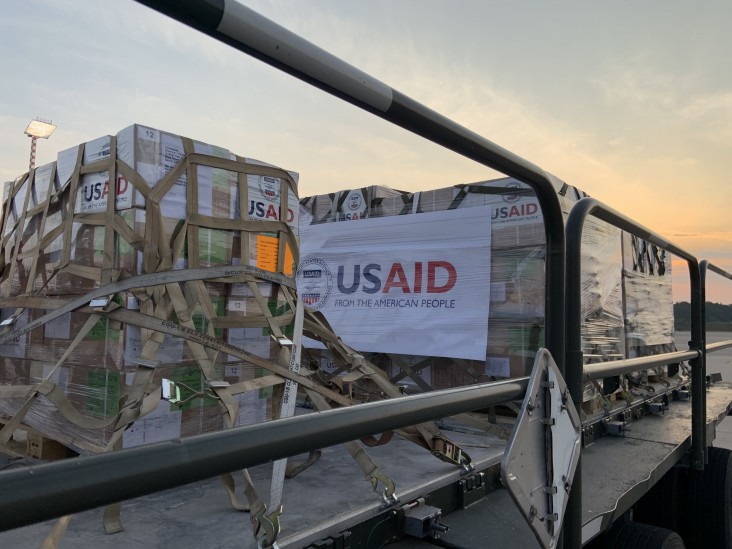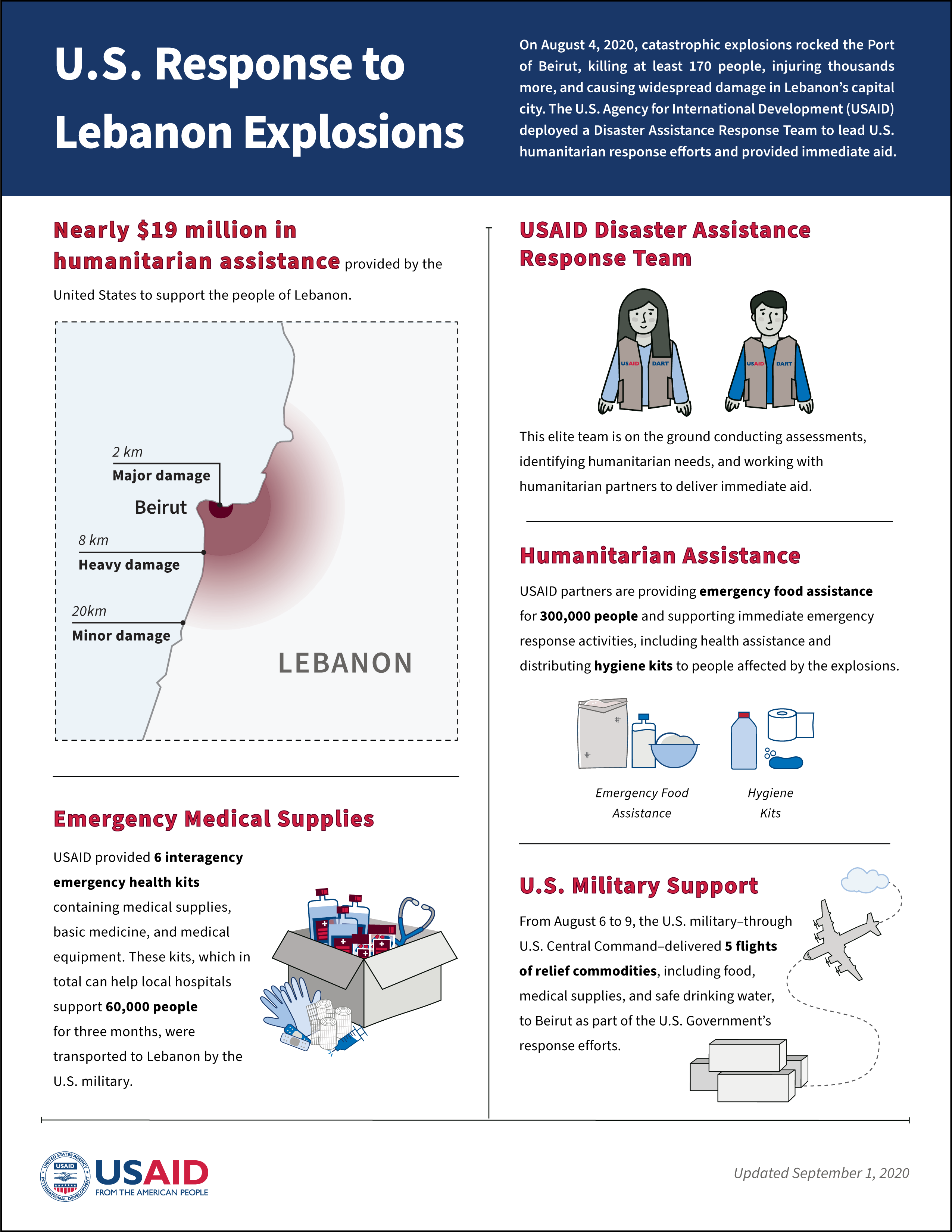- What We Do
- Agriculture and Food Security
- Democracy, Human Rights and Governance
- Economic Growth and Trade
- Education
- Environment and Global Climate Change
- Gender Equality and Women's Empowerment
- Global Health
- Humanitarian Assistance
- Transformation at USAID
- Water and Sanitation
- Working in Crises and Conflict
- U.S. Global Development Lab
Speeches Shim

Key Developments
Overlapping crises—including the COVID-19 pandemic, ongoing refugee crisis, and August 4 explosions at the Port of Beirut—have exacerbated vulnerabilities among Lebanese nationals and refugee populations in Lebanon.
To respond to the refugee crisis, the U.S. Department of State Bureau of Population, Refugees and Migration (State/PRM) provided more than $276 million to United Nation agencies, non-governmental organizations, and other relief organizations in fiscal year 2020, bringing total State/PRM humanitarian assistance to Lebanon to more than $2 billion since fiscal year 2012.
In fiscal year 2020, USAID Bureau for Humanitarian Assistance (USAID/BHA) continued to distribute emergency food assistance to refugee populations and supported communities affected by COVID-19 and the August 4 explosions, bringing total USAID/BHA assistance since fiscal year 2012 to nearly $712 million.
Background
Lebanon has experienced several large socioeconomic shocks due to overlapping crises in late 2019 and 2020, including ongoing political instability, the steep deterioration of the economy, and the emergence of the coronavirus disease (COVID-19). Hyperinflation, the depreciation of the Lebanese lira, lack of livelihood opportunities, and rising prices has diminished the purchasing power of many Lebanese households, increasing vulnerabilities. Meanwhile, COVID-19 has strained health care system capacity and contributed to deteriorating socioeconomic conditions in the country. In November 2019, the World Bank estimated that the combined impacts of soaring inflation and the rapid rise in the price of many basic goods could push more than 50 percent of the Lebanese population below the poverty line during 2020, an increase of approximately 20 percent compared to 2018 estimates.


Comment
Make a general inquiry or suggest an improvement.